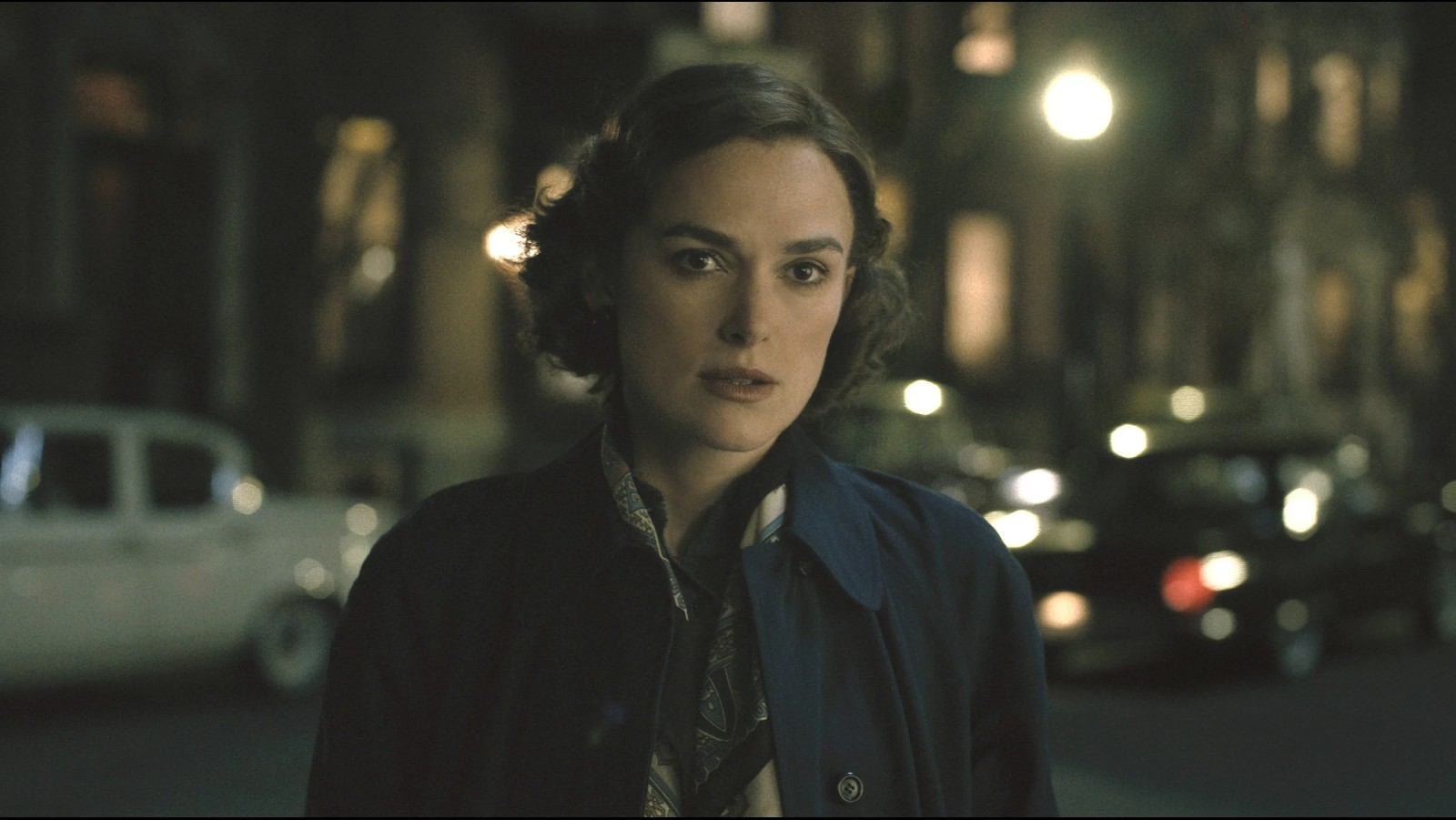In the early 1960s, 13 women were murdered around the Boston area. Most were strangled with their own nylon stockings, leading the press to dub the murderer the “Boston Strangler.” That title also lends itself to Matt Ruskin’s newest feature on the killings, which foregrounds the reporting of Loretta McLaughlin (Keira Knightley) and Jean Cole (Carrie Coon) for the Record American. They not only coined the name but also wrote a four-part series highlighting the investigative gridlock that kept police from discovering the killer and kept the city on edge.
It’s a fascinating story that has been told before, to much less successful results, in 1968’s The Boston Strangler. Here, however, writer-director Matt Ruskin wisely hones in on McLaughlin, Cole, and the media circus that erupted during the killings. Despite dependable performances from Knightley and Coon, who honestly couldn’t be bad in anything, Boston Strangler is workmanlike above all, a drab procedural that showcases the overlapping conflicts of their professional and personal lives. While vastly different in terms of tone and content, the film recalls last year’s She Said, which mined similar territory much more effectively.
Strangler also confronts the same problem David Fincher’s Zodiac contended with 16 years ago: how do you dramatize a story that doesn’t have a definitive ending? To Ruskin’s credit, he begins in Ann Arbor instead of Boston, flashing back to show how these killings gained prominence and highlighting the film’s most interesting choice: pushing forward the multiple-killers theory that has been almost widely accepted in decades since.
Further, Strangler populates its supporting roles with actors who make the most of their somewhat stock characterizations. It would be laughable when Chris Cooper’s no-nonsense editor, Jack Maclaine, yells at McLaughlin “you don’t have a story, you have a grudge” if Cooper wasn’t a good-enough actor to sell such material. The same goes for Bill Camp’s portrayal of Edmund McNamara, Luke Kirby’s F. Lee Bailey, and David Dastmalchian’s Albert DeSalvo (the most common suspect and purported confessor), even if these roles effectively amount to cameos.
It’s perhaps odd that such towering figures from the case are effectively reduced to small amounts of screentime, but Ruskin is only really interested in McLaughlin and, to a lesser extent, Cole. This choice centers what could’ve been a pretty sprawling film (or miniseries) but also leads to a number of odd time jumps and narrative gaps when McLaughlin isn’t on the beat. And Morgan Spector’s presence as her husband becomes an afterthought; Ruskin seemingly has little interest in exploring her home life outside of a few scenes in which the married couple performatively fight about McLaughlin’s workload.
Knightley has too often been pigeonholed by critics for her interest in period pieces, despite building an impressive, varied résumé over the last decade or so. Here, however, she seems to be doing a variation of her character in Official Secrets, another fact-based drama with an impressive cast that you definitely forgot existed. It’s effective, even if no one will rank it among the pantheon of her performances.
The same really could be said about Boston Strangler as a whole. There’s little wrong here. It’s a compelling, ultimately streamlined retelling of a prolonged investigation and a nice reminder of when newspapers could actually make cultural impact. That the Record American eventually morphed into the Boston Herald makes this even more depressing.
But it also seems cribbed from better films, a xeroxed copy of the stock tropes from any investigative-journalism depiction, even down to Ben Kutchins’s drab, olive-green cinematography. Ruskin burst onto the scene with 2017’s Crown Heights, another fact-based drama that buried a powerful Lakeith Stanfield performance in a tone that often played overly academic. He repeats the same problem here, sacrificing emotional complexity for dry procedural.
We can lament the collapse of mid-budget theatrical features, but 20th Century’s decision to release Boston Strangler on Hulu feels right, given its fairly standardized structure and content. It’s never anything less than an insightful watch, which doesn’t exactly make it memorable.
Boston Strangler premieres on Hulu on Friday, March 17.

